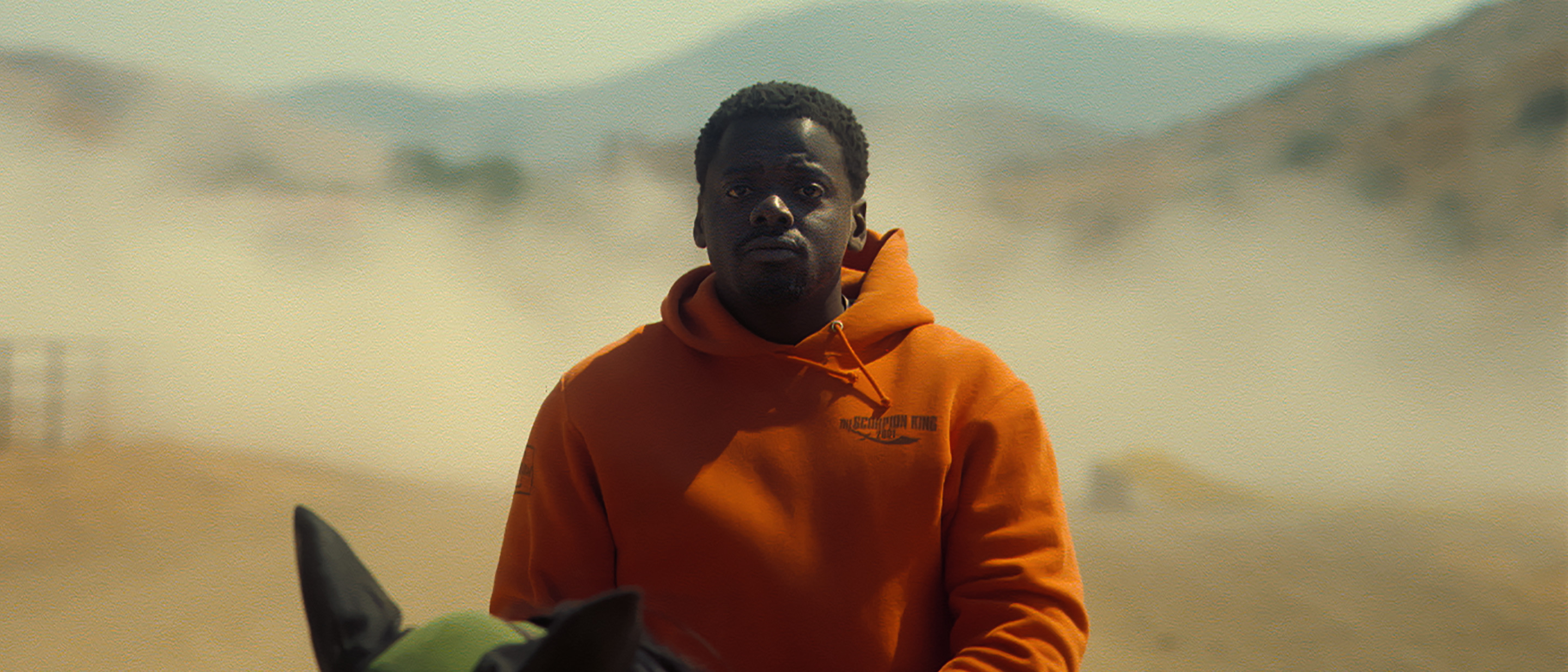TechRadar Verdict
Director Jordan Peele’s slow-burning third feature is wholly original, totally bizarre and undeniably entertaining, though audiences left unmoved by the filmmaker’s previous subtext-heavy movies will likely walk away from Nope frustrated by its ambiguity. Keke Palmer, for her part, is a revelation, and Daniel Kaluuya delivers spades of understated emotion in this high-concept horror that lacks a killer blow.
Pros
- +
Darkly comic
- +
Exceptional sound design
- +
Impressive cinematography
Cons
- -
Lacks finality
- -
Several characters feel underserved
Why you can trust TechRadar
When a movie opens with a title card bearing the line, "I will cast abominable filth upon you, make you vile and make you a spectacle”, you know you're in for a wild ride.
Those familiar with director Jordan Peele’s previous features – Get Out and Us – will also know better than to cast off that Biblical passage as pretentious fearmongering. Almost every frame in Nope is meticulously designed to reveal more about the movie’s deceptively simple premise, and it’s this penchant for the ambiguous that has established Peele as one of the most exciting – and divisive – filmmakers working today.
Nope is his boldest vision to date; a 135-minute horror-comedy that delights, surprises and at times frustrates while remaining unmistakably the work of its boundary-pushing creator.
Cowboys and aliens
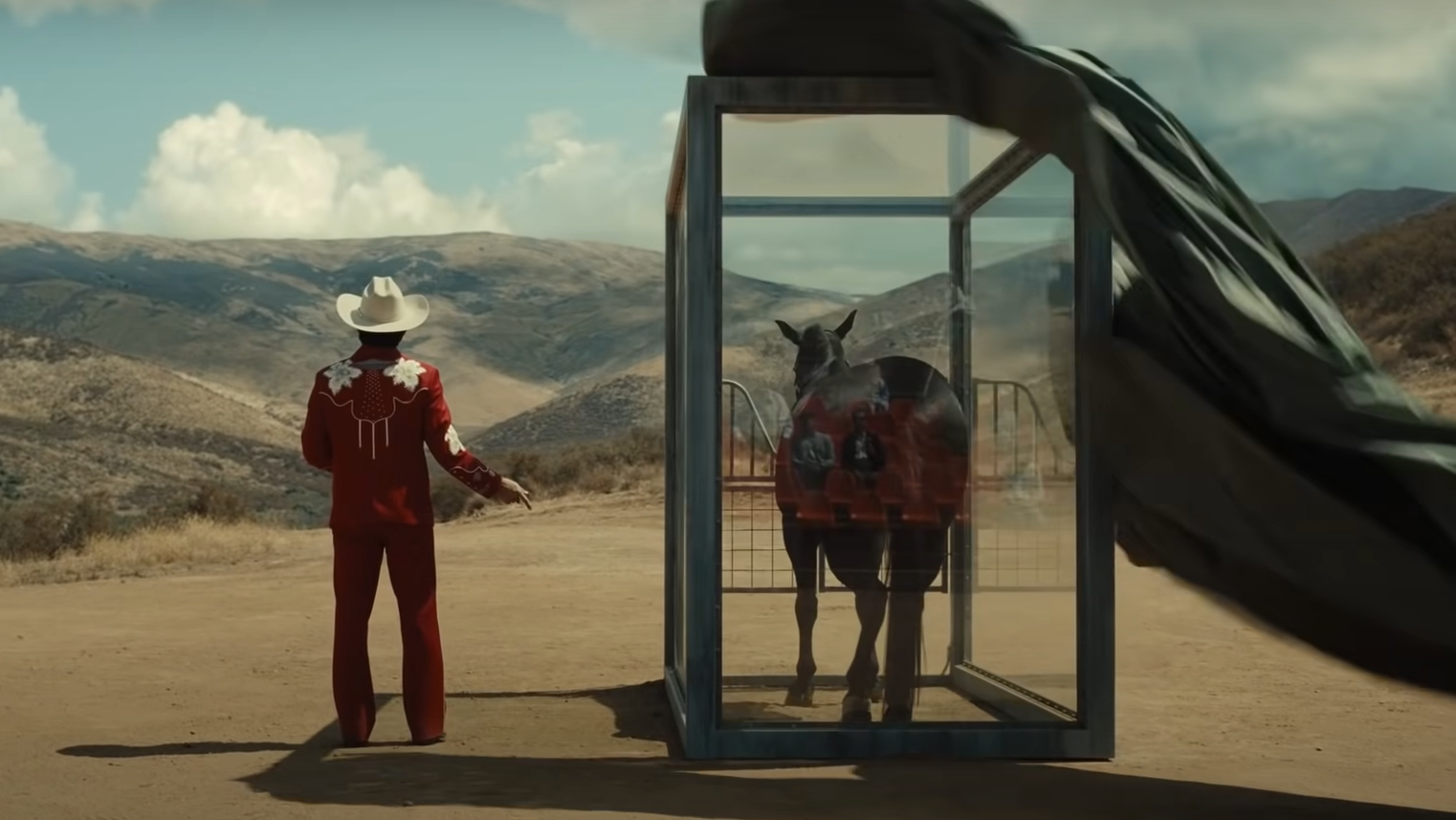
As we’ve come to expect from Peele, Nope is a movie whose plot is difficult to summarize without straying into spoiler territory. But we’ll try anyway.
Things kick off when Hollywood horse wranglers OJ (Black Panther’s Daniel Kaluuya) and Emerald Haywood (Lightyear’s Keke Palmer) become convinced that a UFO has taken up residence in the skies above their California ranch. Despite the one-time legendary status of their family business, the pair are forced to sell horses to former child star and local amusement park owner Ricky ‘Jupe’ Park (Stephen Yeun), whose own fascination with a cloud-dwelling extraterrestrial sets OJ and Emerald on a mission to capture the elusive being on video.
Of course, there’s far more nuance to Nope’s story – it’s quickly revealed, for instance, that Yeun’s Jupe is the sole survivor of a performing chimpanzee attack – but on a superficial level, this is a film that borrows heavily from Steven Spielberg’s classic creature features.
As such, Nope places emphasis on smart camerawork over whip-smart dialogue in its bid to make audiences fear what lurks in the dark. Regular Christopher Nolan cinematographer Hoyte van Hoytema – who shot the movie using a suite of 15/65mm IMAX film cameras – is on hand to ensure its sense of scale is nothing short of spectacular, and Peele regularly plays to the grandeur of his classically Western surroundings (think open plains and dust clouds) in a way that sets Nope apart from the director’s first two features.
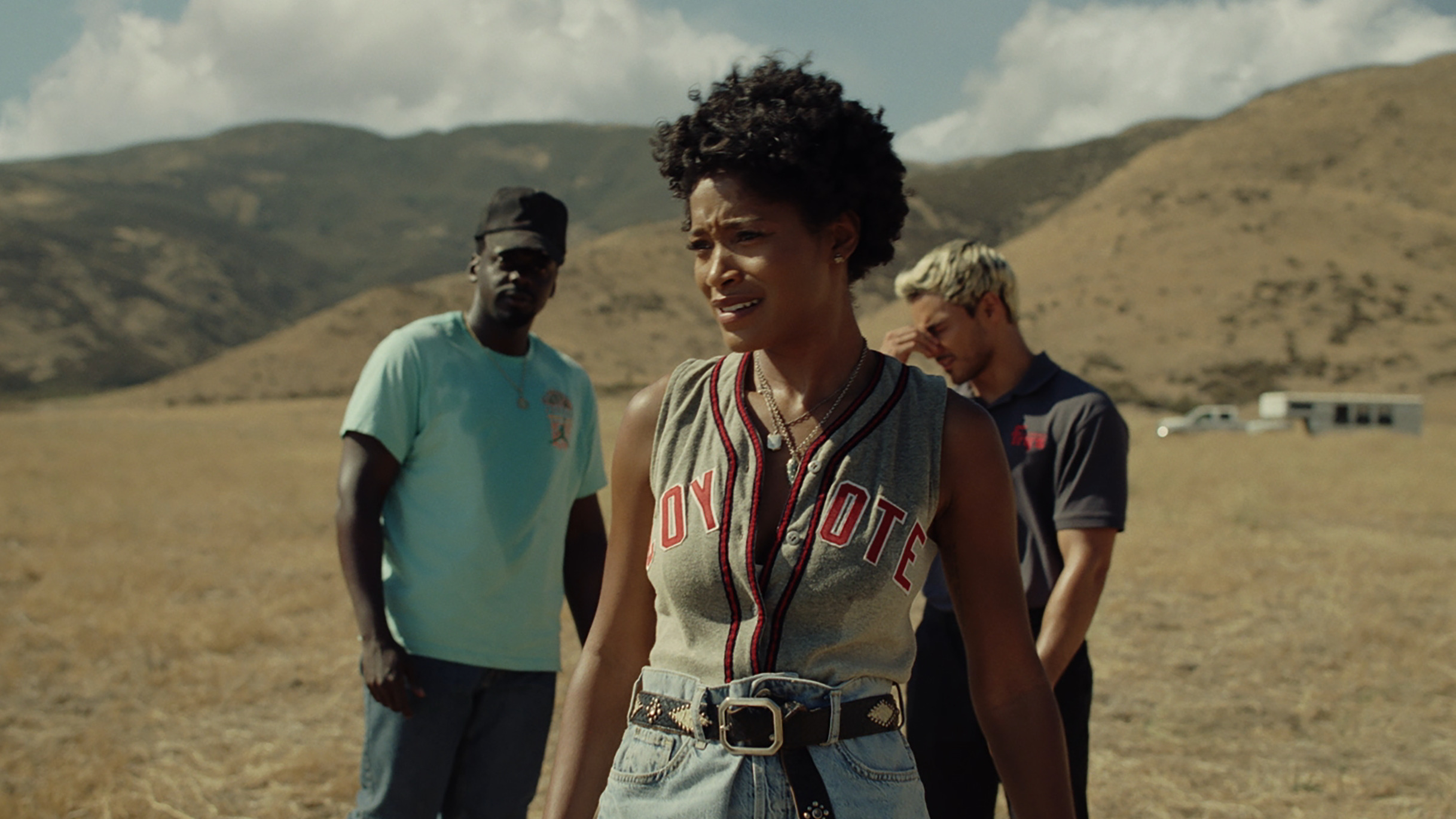
To their credit, both Kaluuya and Palmer manage to avoid being swallowed up by the film’s all-encompassing geography. The former is one of those rare actors who can elicit emotion using only his eyes, and here Kaluuya gives his most ocular performance since Get Out, frequently staring and glaring to typically chilling effect.
Palmer, though, gives Nope an entirely different dimension: humor. Emerald is, without a doubt, the film’s most likeable character, swaggering through its supernatural happenings with all the confidence of a would-be movie star (in stark contrast to Kaluuya’s OJ, who clearly finds her relentless enthusiasm grating), and Palmer is never less than compelling in a role that could so easily have played as clichéd.
A special nod must also go to the Nope’s truly outstanding sound design, which more than matches its patently obvious sci-fi inspirations (Close Encounters, Jaws and War of the Worlds are particularly well-represented here).
Peele back the layers
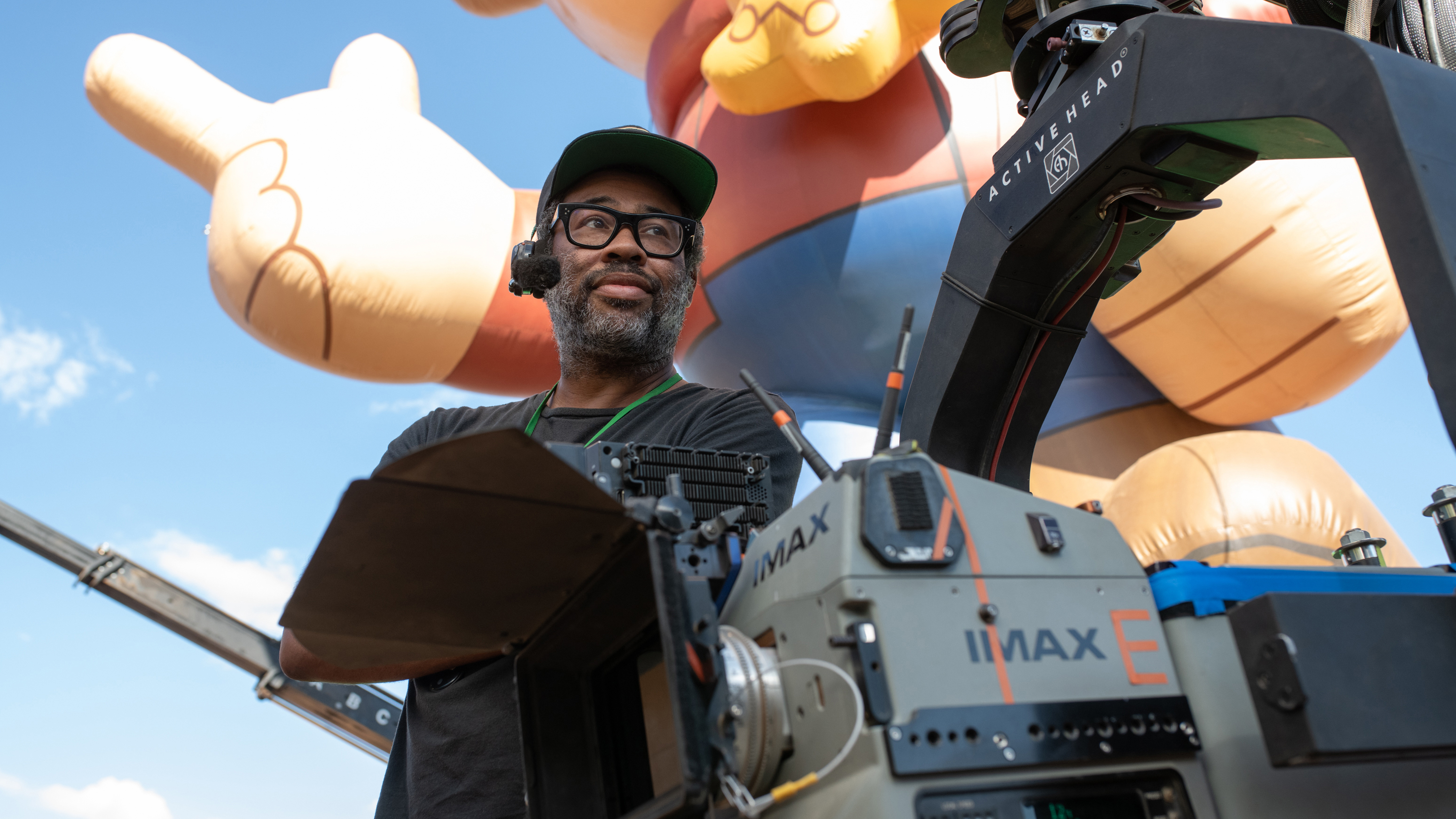
Technically, then, Nope is a marvel – a movie rivaled only by Top Gun: Maverick for pure cinematic spectacle in 2022. But behind its bag of audiovisual tricks lies an even bigger bag of allegorical ideas, and it’s in this regard that Nope occasionally tests the patience.
Again, it’s tough to elaborate without revealing the movie’s biggest surprises, but Peele shows his audience an awful lot in just over two hours without returning to, or building upon, plot beats that deserve more screen time.
Characters come and go in an almost shift-like cadence – only OJ and Emerald remain the focus throughout, while Yeun’s Jupe, Michael Wincott’s Antlers and other interesting folk make little more than cameo appearances. Heck, Euphoria’s Barbie Ferreira appears for a matter of seconds before disappearing forever. The result, since each new face represents a larger piece of social commentary – as everyone and everything does in Nope – is that Peele’s metaphorical throughline becomes muddied.
Of course, this reluctance to spoon-feed is a hallmark of the director’s work. His movies encourage questions and promote interrogation – that’s all part of their fun. But Nope’s symbolism is so varied and unrelenting that the experience as a whole is particularly difficult to digest. The film’s script is packed to the rafters with allusions to race, art, trauma and exploitation, yet the combination doesn’t result in a cohesive takeaway.
Nope’s final shot encapsulates this feeling nicely. It’s striking, moving, beautifully orchestrated and clearly figurative – but the nature of its metaphor is frustratingly difficult to pin down.
Still, die-hard Peele fans will inevitably lap up Nope’s various meditations, and Peele himself deserves a great deal of credit for positioning himself as the only contemporary Hollywood director who could commercialize a film like this.
Our verdict
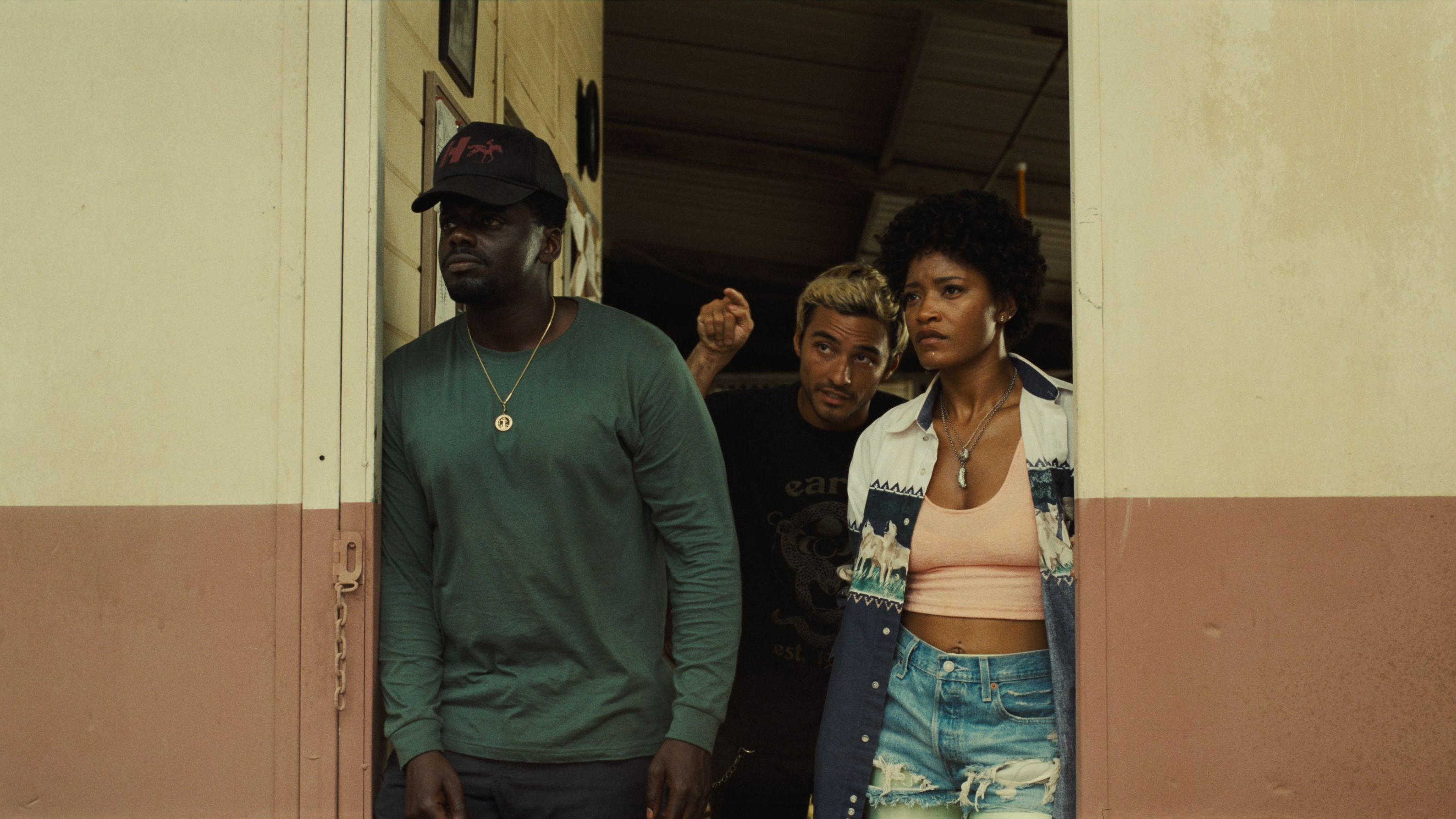
Despite the emptiness of its Western setting, Nope is – for better or worse – an exceptionally busy blockbuster. Jordan Peele delivers on the head-scratching promise of his previous features to deliver a bold and brainy sci-fi adventure that demands a big screen viewing.
Its ambiguity will certainly frustrate some, and several characters deserved more involvement, but Nope is an undeniably enjoyable ride and a fitting entry in the canon of post-pandemic cinema.
Nope is now playing exclusively in theaters worldwide.

Axel is TechRadar's UK-based Phones Editor, reporting on everything from the latest Apple developments to newest AI breakthroughs as part of the site's Mobile Computing vertical. Having previously written for publications including Esquire and FourFourTwo, Axel is well-versed in the applications of technology beyond the desktop, and his coverage extends from general reporting and analysis to in-depth interviews and opinion. Axel studied for a degree in English Literature at the University of Warwick before joining TechRadar in 2020, where he then earned an NCTJ qualification as part of the company’s inaugural digital training scheme.
